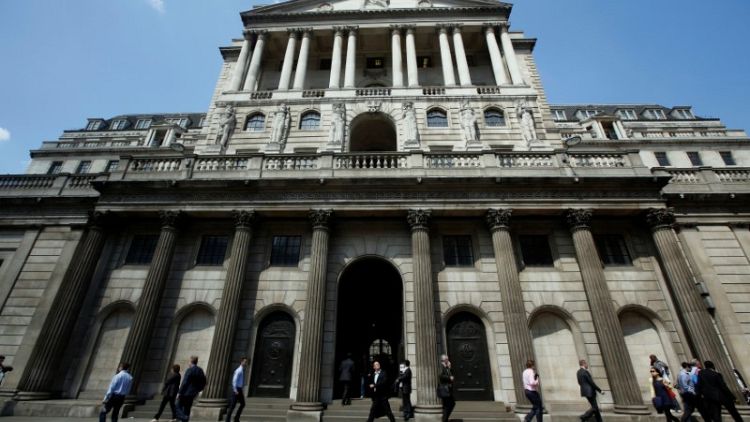By David Milliken
LONDON (Reuters) - Changing interest rates will continue to be the Bank of England's main tool for steering the economy once it starts to sell its 435 billion pounds of quantitative easing (QE) assets, BoE Deputy Governor Ben Broadbent said on Monday.
Broadbent stuck close to the central bank's recently updated guidance on the relationship between QE and interest rates in a speech to London's Society of Professional Economists.
"The framework is designed to ensure that, should inflationary pressures weaken after that date, the first response would be to cut interest rates," Broadbent said.
Last month the BoE said it might start to sell some of the 435 billion pounds of government bonds it bought to provide quantitative easing stimulus once it raises its interest rate to about 1.5 percent, compared with a previous 2 percent threshold.
The BoE's main interest rate currently stands at 0.5 percent - its level for most of the period since 2009. Most economists polled by Reuters expect the BoE to raise rates to 0.75 percent next week, but then to keep rates on hold until 2020.
Broadbent said he did not know exactly when the 1.5 percent threshold for starting to reverse QE was likely to be met.
He also added that QE sales might themselves push down on inflation.
"To that extent, Bank Rate would be lower than it otherwise would have been," he said.
"That's why we took care to add another sentence to last month's monetary policy statement: 'Decisions on Bank Rate will take into account any impact of changes in the stock of purchased assets on overall monetary conditions, in order to achieve the inflation target'."
The BoE says it intends to raise interest rates in a limited and gradual way, and its most recent set of economic forecasts in May assumed rates of 1.2 percent by late 2020.
Broadbent said in May that it had been a "straightforward" decision for him to vote to keep interest rates on hold that month, after several pieces of weak first-quarter data.
Since then, other BoE policymakers have said the first-quarter slowdown looks to have been mostly weather-related.
Broadbent did not directly address the outlook for the economy in the text of his speech.
(Reporting by David Milliken; Editing by Andrew Heavens)



